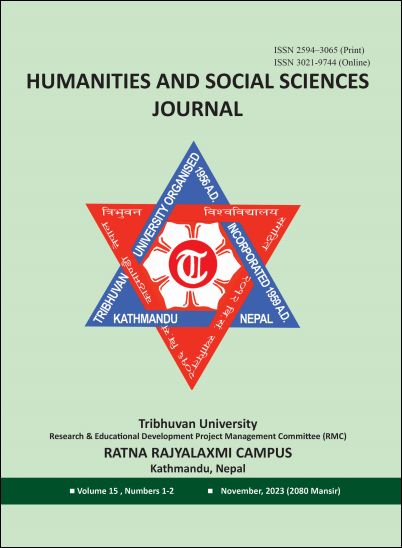Scope of Proactive Public Information Disclosure in Advancing Nepalese Local Governance
DOI:
https://doi.org/10.3126/hssj.v15i1-2.63788Keywords:
public information, local governance, proactive disclosure, RTIAbstract
Proactive disclosure is a tool that organizations, especially government agencies and public institutions, use to voluntarily provide information to the public without the need for formal requests. It is taken as a fundamental right of the citizen and the heart of democracy, which ensures transparency, accountability, and open government by making information accessible to the public. Proactive disclosure is a very important provision of the Right to information (RTI) Act of 2007 that obligates the government to inform citizens regarding its daily activities, decisions, performance, and budget details proactively or on the request of citizens. Beneficiaries, governments' bodies, and experts and facilitators of RTI shall equally have the responsibility to seek, receive, and impart information that is protected by the government. The main purpose of the paper is to determine the scope of proactive disclosure of public information in advancing transparency and accountability of local governance and examine the practices of proactive disclosure of public information from the perspective of RTI Act implementation in Nepal. It has employed purposive sampling for data collection when primary data were collected in the form of information disseminated on the websites of four local bodies and secondary data from various books, journals, reports, etc. This is a really important since it has contributed to local governance being transparent and accountable towards citizens and public service delivery.




